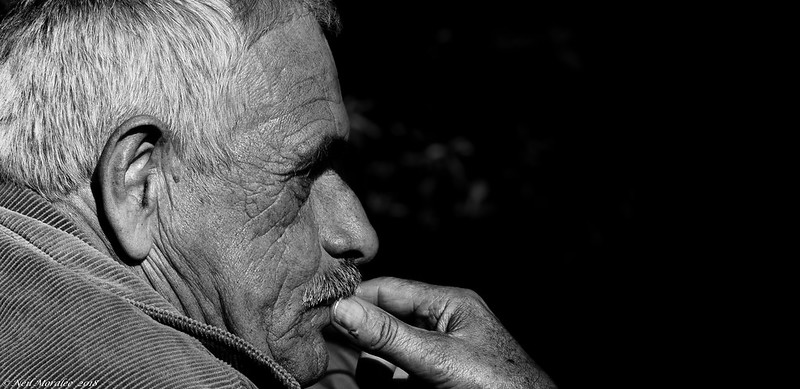Heiko's recent articles

21 March 2022
Dental care must be on the election agenda - it's time
As the federal election looms so too does a crisis in affordable access to dental care. The pandemic has served to further widen the socio-economic dental divide – and there are consequences for healthcare costs, productivity and social inclusion.

1 March 2022
Investing in community health is the solution to our aged care crisis
The problems in residential aged care are a product of a much broader issue, namely the failure to fund publicly subsidised comprehensive multidisciplinary community care.
13 August 2020
Why is Australia's public health data hidden?
Against the backdrop of Melbourne's Stage 4 Restrictions, Victoria's State of Disaster and diminishing personal freedom in other parts of Australia, we need to have a discussion about the lack of public health data in Australia.
13 December 2019
ALEXANDER HOLDEN and HEIKO SPALLEK. We Must Fill the Hole in our Public Health Services: Why Doesn’t Medicare Cover the Mouth?
In Australia, the cost of visiting a GP can be completely covered by Medicare, with anyone being able to see a medical professional free of charge, regardless of their ability to pay privately.
16 August 2019
ALEXANDER HOLDEN and HEIKO SPALLEK. Private Health Insurance Under the Lens: Dental Providers and Patients Should Contribute to the Discussion.
While Stephen Duckett’s and Kristina Nemet’s recently released Grattan Institute report “The history and purposes of private health insurance” predominantly deals with the medical part of private health insurance (PHI), many questions that are raised are of vital interest to all dental professionals and their patients. In an attempt to stimulate a public debate, we are juxtaposing the debate about Australian PHI and two recent papers published in The Lancet that feature within a series on oral health.
6 May 2019
ALEXANDER HOLDEN and HEIKO SPALLEK. Labor’s Pensioner Dental Plan: Long in the Tooth or a Novel Idea?
A step in the right direction for Australia’s oral health? Following the release of the Grattan Institute’s report; Filling the gap: A universal dental care scheme for Australia, we have seen the Greens announce their policy of a universal dental scheme, “Denticare” funded through Medicare, and now, on 28th April, the Australia Labor Party announced their commitment to a targeted scheme, the Pensioner Dental Plan.
19 March 2019
ALEXANDER HOLDEN and HEIKO SPALLEK. Laying Out the Road Map for an Australian Universal Dental Scheme
Can you imagine an Australia where visiting a dentist was as simple as visiting a GP? The Grattan Institute has released a report: Filling the dental gap: A universal dental scheme for Australia, that does just this. The report begins by highlighting the disparity between a routine health check with a GP and visiting the dentist; those visiting the dentist might expect it to hurt more, but usually in the pocket more than anywhere else.
8 March 2019
HEIKO SPALLEK and ALEXANDER HOLDEN. Oral health – an essential component of a healthy life.
“Oral health is fundamental to overall health, wellbeing and quality of life. It is an important part of general health, affecting not only the individual, but also the broader health system and economy.” So says the 2017 Performance Monitoring Baseline Report for Australia’s National Oral Health Plan 2015 – 2024. This acknowledgement that oral health is an essential component of a healthy life is promising, but how do we know if we are moving towards enshrining good oral health for all Australians?
4 December 2018
Time to make dental care an election issue
Scientific breakthroughs in the prevention and treatment of tooth decay and dental disease have not yet converted dental practice, and consequently dental costs, in Australia. It will take a paradigm shift in how we organise and train our dental work force and how we fund dental services to deliver the benefits if these new prevention-focused treatment modalities. The improvements in outcomes and reductions in costs that are possible offer real incentives for governments to deliver dental care to all Australians.
7 November 2018
No clever answers! Finding the right questions about dental care in Australia
The significant impact that dental disease makes to the financial and social burdens of preventable chronic illness in Australia is rarely acknowledged, although there is substantial evidence of the inequalities in access to dental care. Dental care is not seen as an essential part of health care as if the mouth is not seen as part of the human body. This situation will not change unless and until answers are found to a series of crucial questions.
